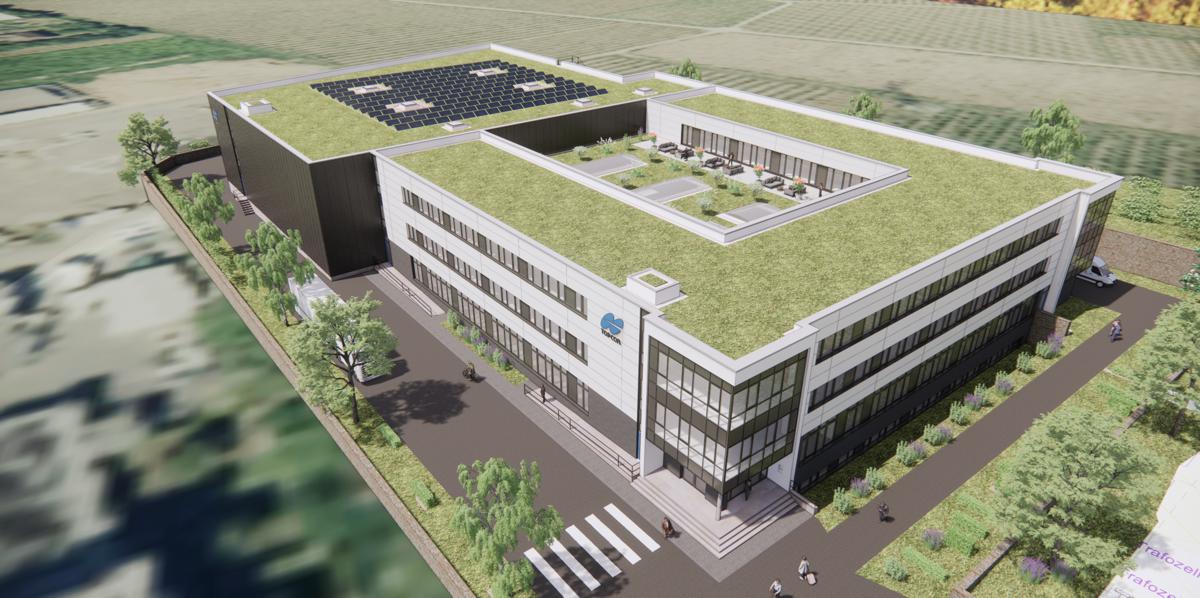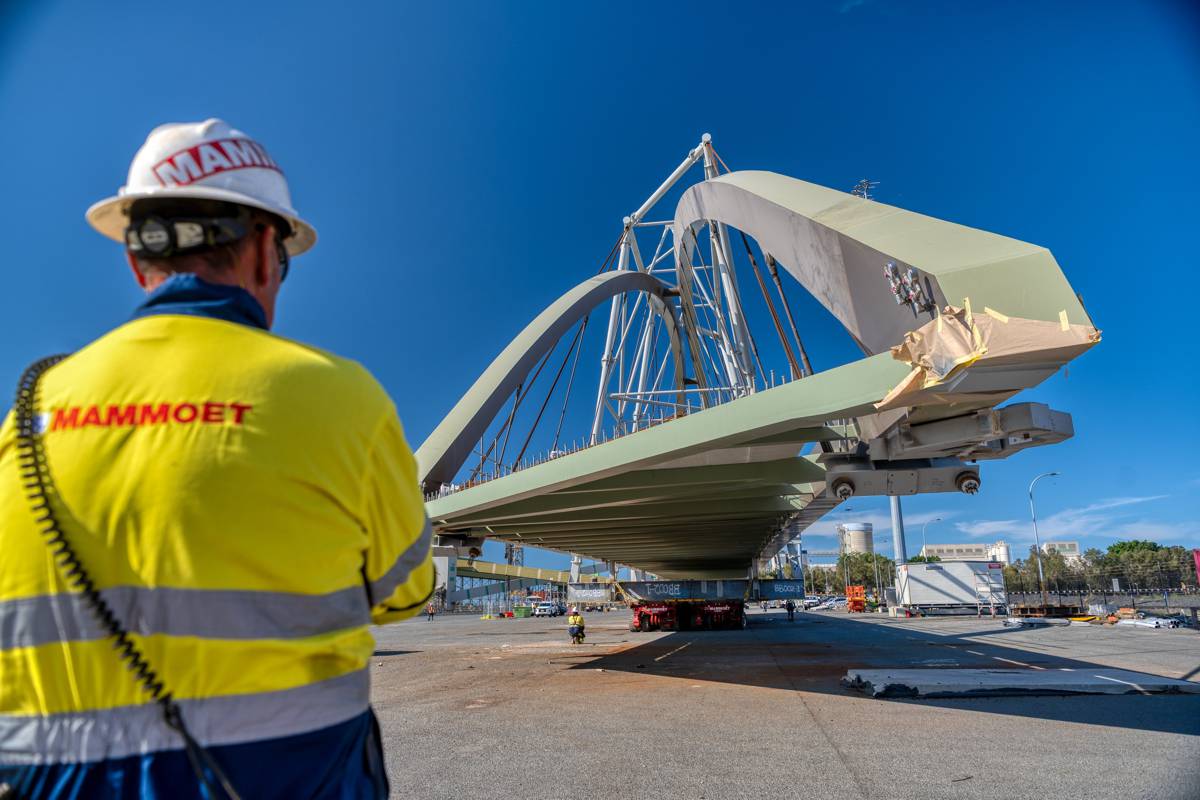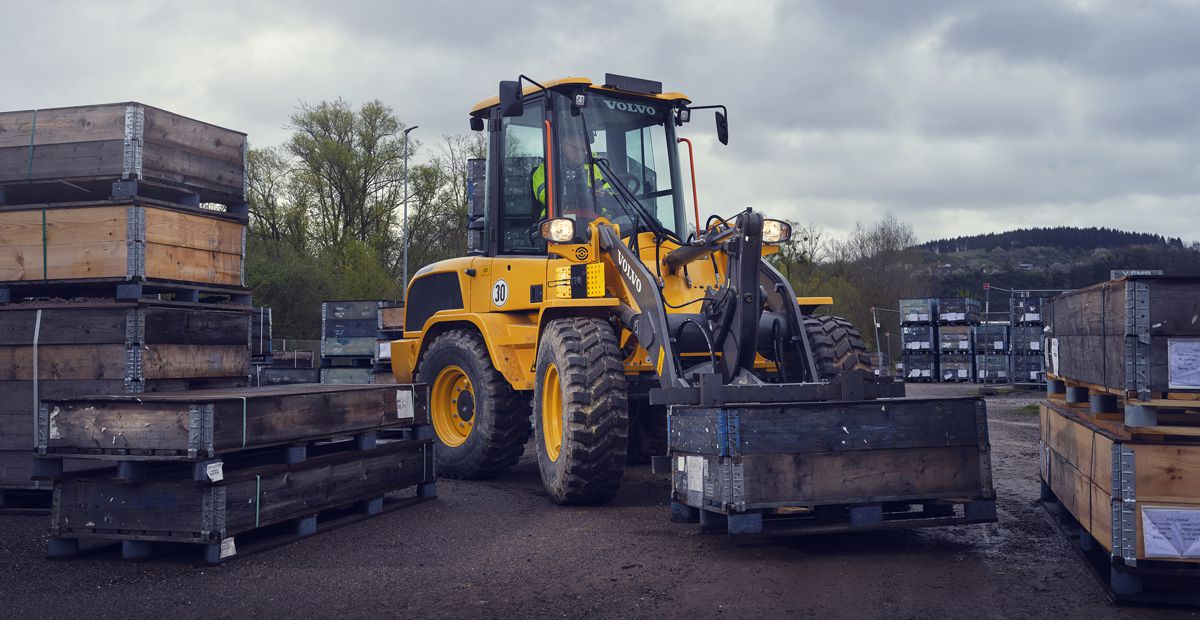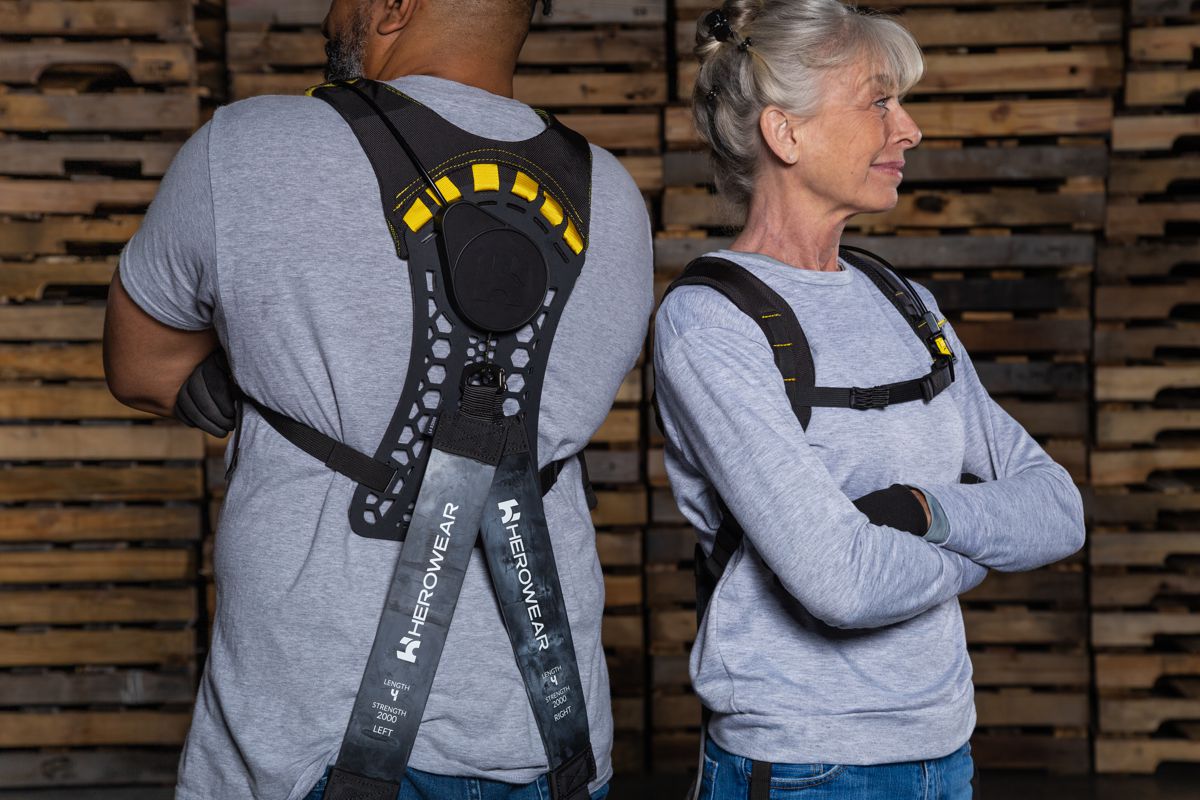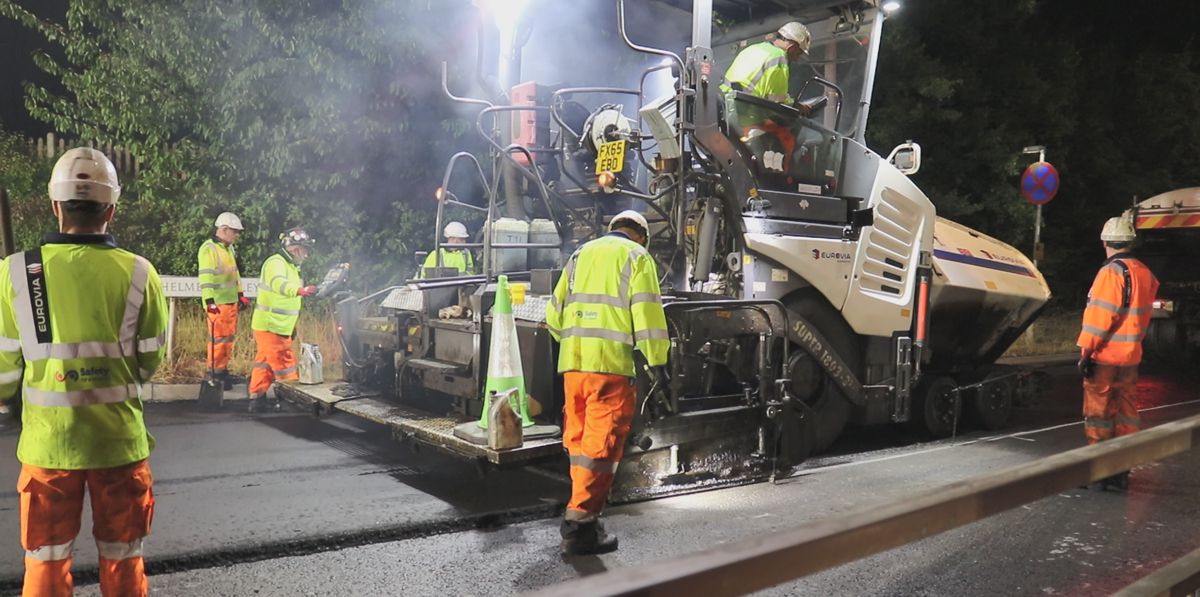Vögele Paving Train lays the perfect Racing Track for Magarigawa Club in Japan
Tight bends and uphill gradients up to 19%: Three Vögele pavers and one MT 3000-3i Offset material transfer vehicle were deployed on the construction of a race track near Tokyo.
70 km (just over 43 miles) from Tokyo, near the city of Minamiboso, a highly demanding private race track has been built. Due to its mountainous location, the circuit features steep climbs and downhill stretches, as well as numerous chicanes and tight bends.
Using three SUPER pavers, primary contractor that supervised and managed this project Maeda Corporation, and paving contractor Maeda Road Construction Co., Ltd precisely implemented the plans drawn up by internationally renowned race track design firm Tilke.
A Vögele MT 3000-3i Offset material transfer vehicle played a key role in achieving the high quality standard.
Private race circuit with highly demanding track profile
This project was a comprehensive leisure facility that includes Japan’s first dedicated driving course, planned by CORNS & Company Limited, the ordering company, for customer owner-drivers. It was recently executed in the mountainous region not far from Tokyo: a driving club with its own race track, designed by Dr. Carsten Tilke. He has a history of creating race tracks all over the world, including a number of Formula One circuits.
Tilke harmoniously integrated the Japanese circuit into the hilly landscape, while pursuing his customary ambitious aims of challenging drivers to the utmost, delivering enormous driving pleasure, and at the same time meeting all modern-day safety requirements, including by incorporating extensive run-off zones at corners.
The 3.5 km (2.2 mile) Magarigawa Club circuit features steep downhill stretches with gradients of as much as 16%, and climbs of up to 19%. The longest straights extend for 800 meters (875 yards), allowing for truly high-speed racing. In between, chicanes as well as tight bends with a 14 meter radius demand top-level driving skills.
Vögele paving train in operation
Renowned Tokyo-based construction company Maeda Road Construction Co., Ltd handled the challenging job using four Vögele machines.
Two SUPER 1800-3i and SUPER 1803-3i Universal Class pavers and a Highway Class 1900-2 paver carried out the actual paving, while a MT 3000-3i Offset material transfer vehicle transported the asphalt from the trucks to the pavers’ receiving hoppers.
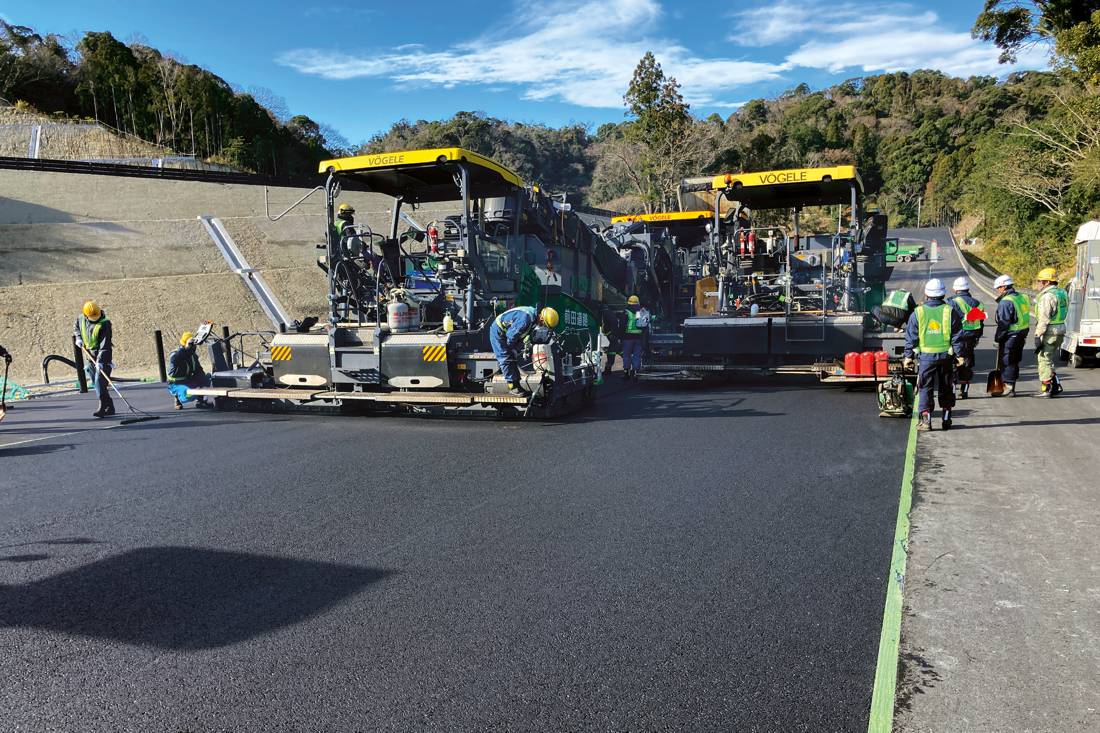
Four layers on about 100,000 m² (120,000 sq.yds.)
The SUPER 1800-3i and the SUPER 1803-3i paved the race track itself. They laid the asphalt over a surface area of 100,000 m² (120,000 square yards), across a width of between 8 and 12 meters (26.2 and 39.4 ft.).
It consists of an 18 cm (7.1 in.) thick unbound base course and a 12 cm (4.7 in.) bound base course, topped by a 6 cm (2.36 in.) binder course and a 4 cm (1.6 in.) surface course. In addition to the 3.5 km (2.2 mile) long circuit covering an area of 36,000 m² (43,000 square yards), the asphalt work also included 60,000 m² (72,000 square yards) of run-off zones, as well as the pit lane and service roads.
These ancillary surfaces, as well as the base courses, were paved primarily by a tried and proven SUPER 1900-2 model paver, which Maeda Road Construction has been operating successfully for many years.
MT 3000-3i Offset PowerFeeder paves the way to quality
Besides the pavers, another Vögele machine was also crucial in achieving the high standard of paving quality: the MT 3000-3i Offset material transfer vehicle. The PowerFeeder decouples the material transfer from the truck to the paver, so ensuring a consistent and efficient paving process, and high-quality results.
In the MT 3000-3i Offset’s large-capacity receiving hopper, the mix is conveyed transversely by conical augers, which results in it being thermally homogenized. With an effective heating system that heats the conveyor and the transfer points, the material transfer vehicle actively counteracts cooling and segregation of the mix.
That’s why the Vögele PowerFeeder is often used on jobsites like the one in Minamiboso, where the highest quality is demanded, and tight schedules have to be met.
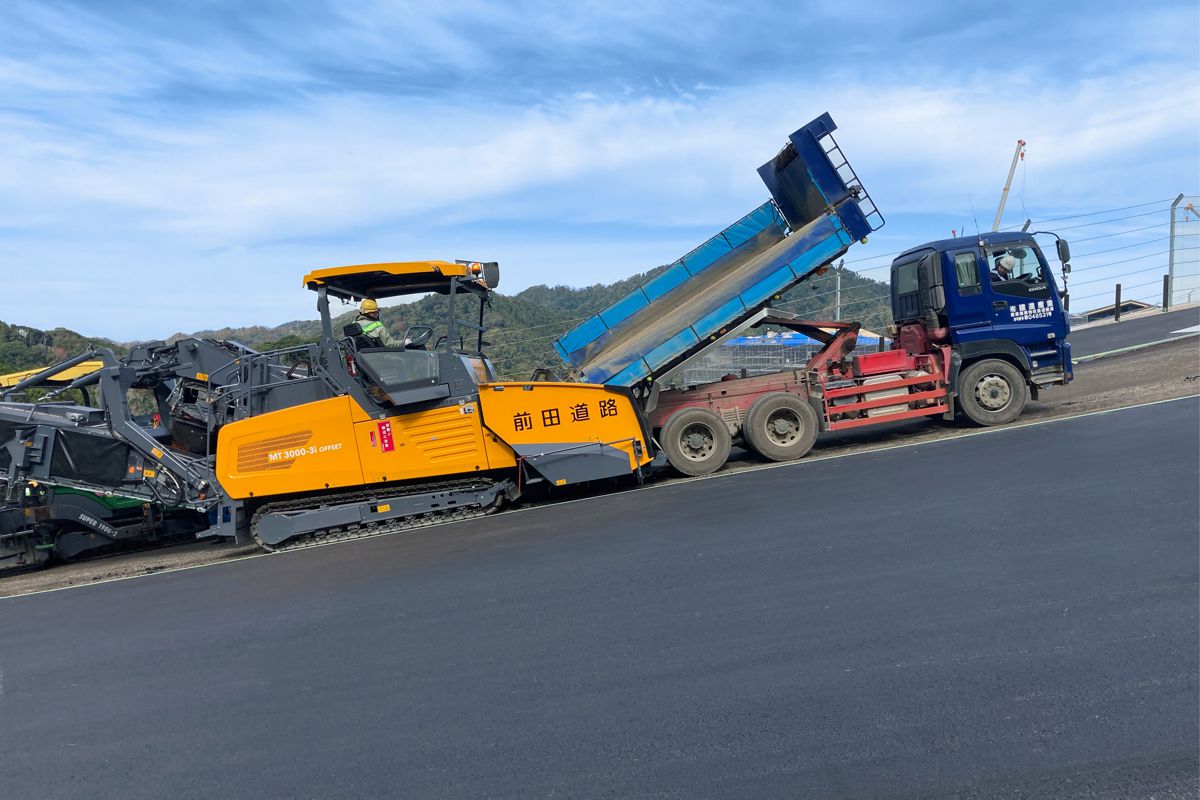
Pivoting conveyor enhances efficiency
In the mountains of Japan, another feature of the PowerFeeder was important: In its “Offset” version, the machine has a height-adjustable conveyor that can be swung 55° to the left and right.
The discharge point into the extra material hopper of the SUPER paver is at a height of up to 3.60 m (11.8 ft.), and optionally up to 3.90 m (12.8 ft.). The paver is ergonomically controlled via a joystick. It forms part of the ErgoPlus 3 operating concept, a highly intuitive system specially designed to meet the requirements of material transfer vehicle operators.
With the pivoting conveyor, despite the steep transverse and longitudinal slopes on the racetrack job site, the MT 3000-3i Offset was able to alternately supply both SUPER pavers with material, without having to manoeuvre constantly. That resulted in much greater efficiency.
“Hot to hot” paving with Vögele Universal Class pavers
Supplied with mix by the PowerFeeder, two Vögele pavers operated constantly in “hot to hot” paving mode, with Maeda Road Construction’s tracked SUPER 1800-3i and wheeled SUPER 1803-3i working at a slight offset to produce a jointless asphalt surface.
This will ensure high stability and durability for the track.
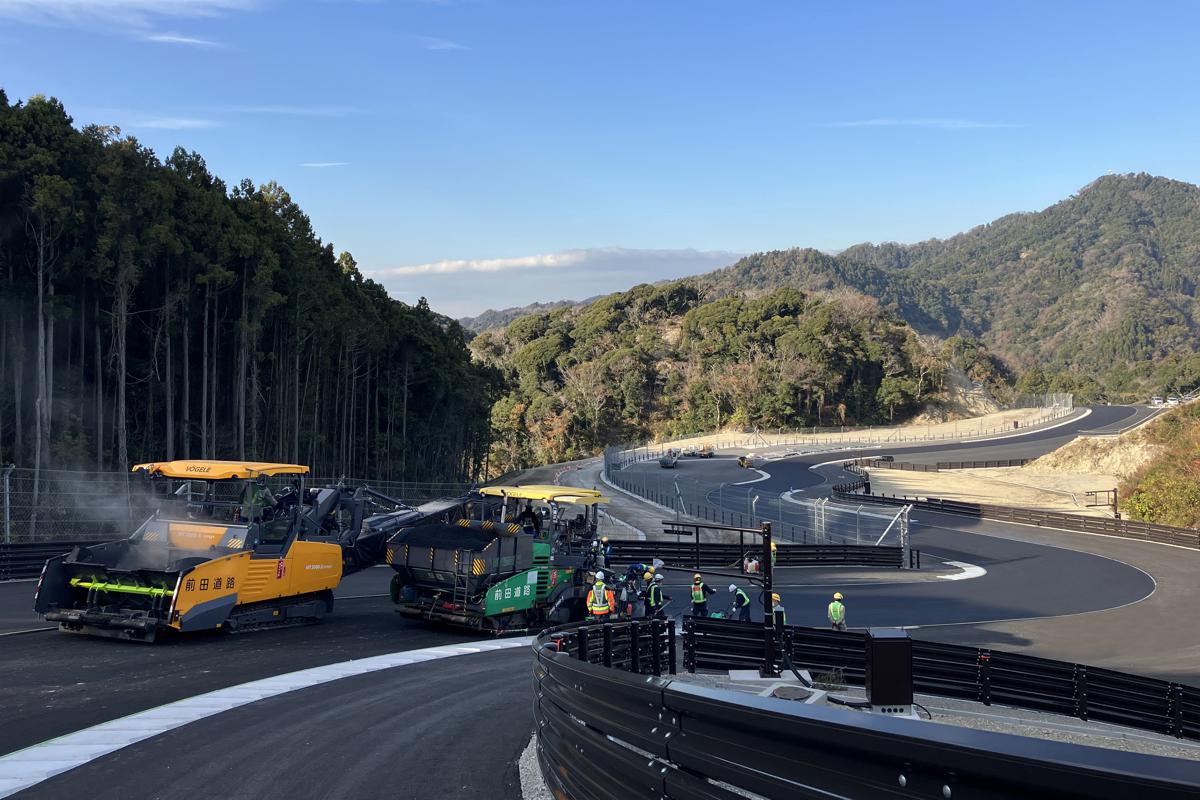
Wheeled and tracked pavers combined to form an effective team
The paving team also utilized the benefits of the different undercarriage systems: Tracked pavers provide excellent traction, and maintain consistent straight-line travel.
Wheeled pavers are particularly good at producing tight bend radiuses, as their undercarriage allows them to turn in very sensitively and smoothly. So the paving team primarily deployed the SUPER 1803-3i on the insides of bends.
The result was a consistently high quality of asphalt layering, even on the circuit’s hairpin bends.
The Magarigawa Club
- Private race track with driving club in Minamiboso, Japan
- Length: 3,571 m
- Corners: 22 (10 right-handers, 12 left-handers)
- Tightest radius: 14 m
- Length of straight from start to finish: 800 m
- Steepest uphill gradient: 18.6%
- Steepest downhill gradient: 16.2%
- Difference in elevation: 250 m


